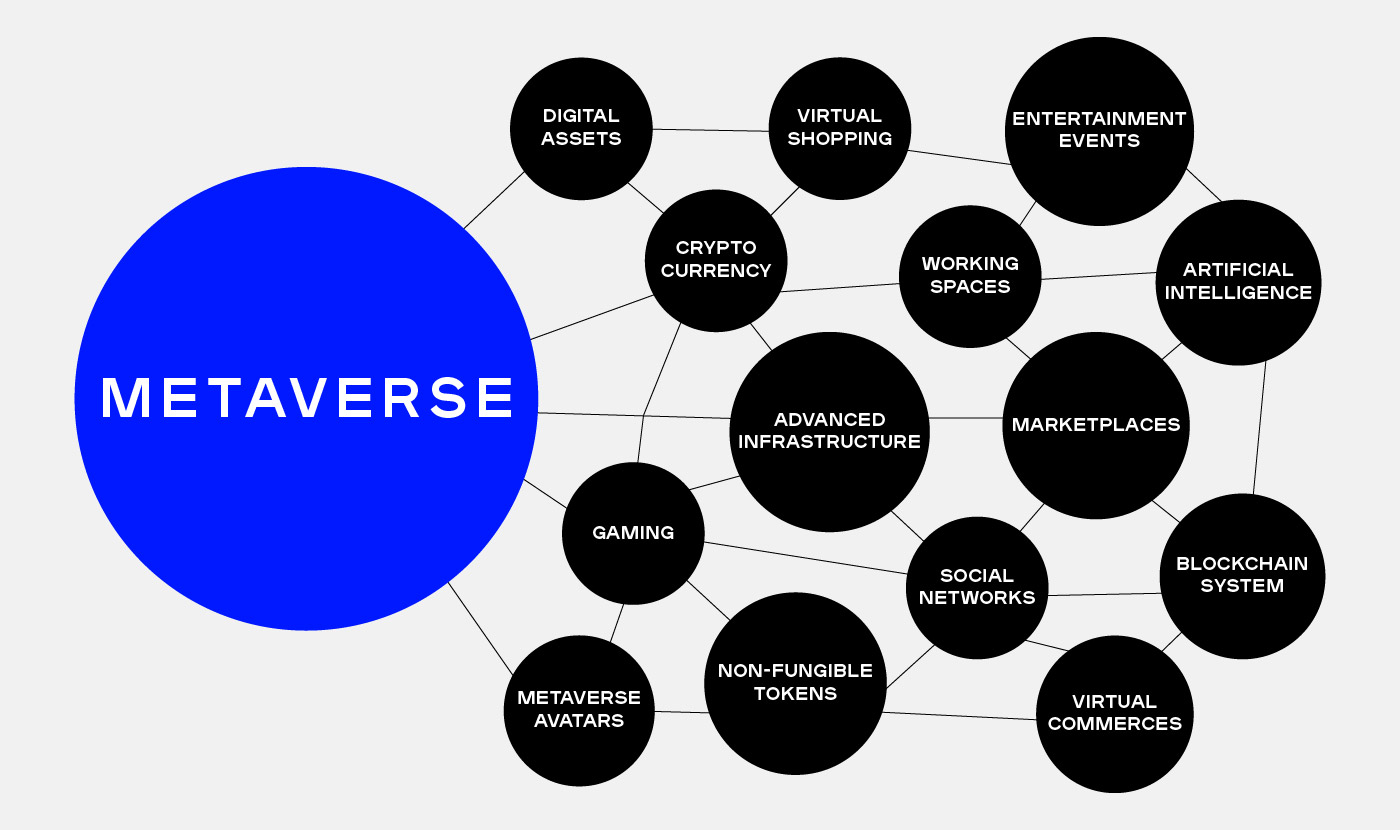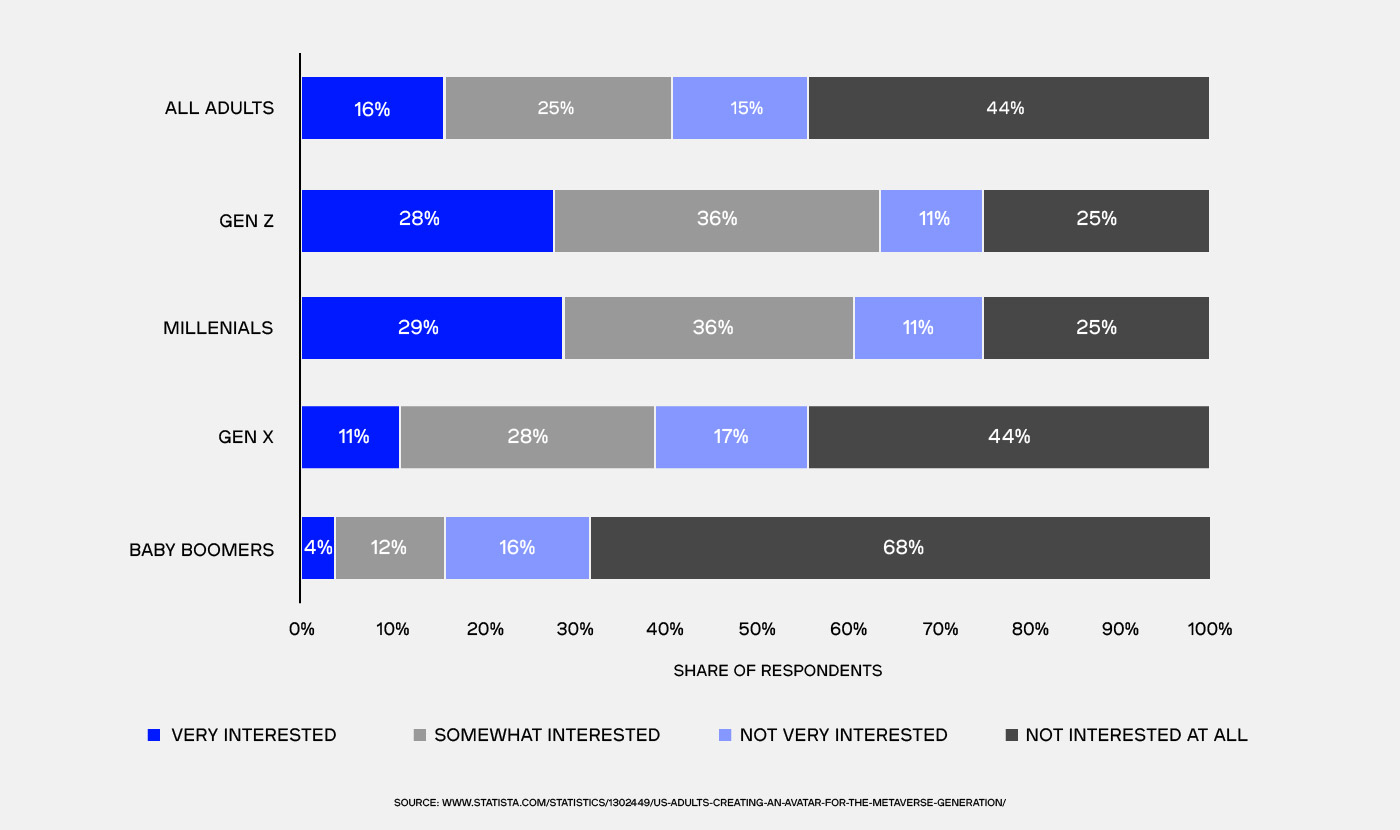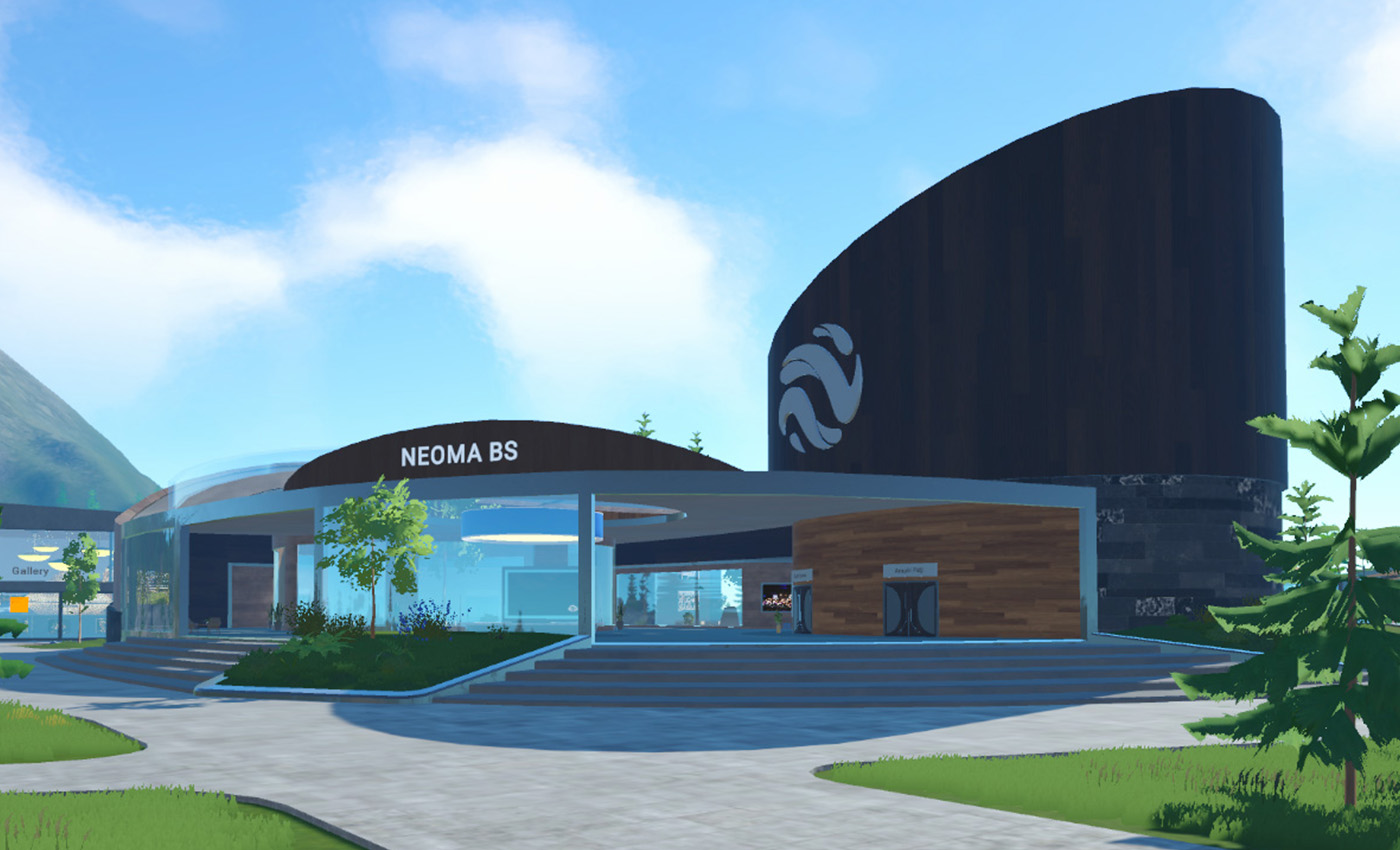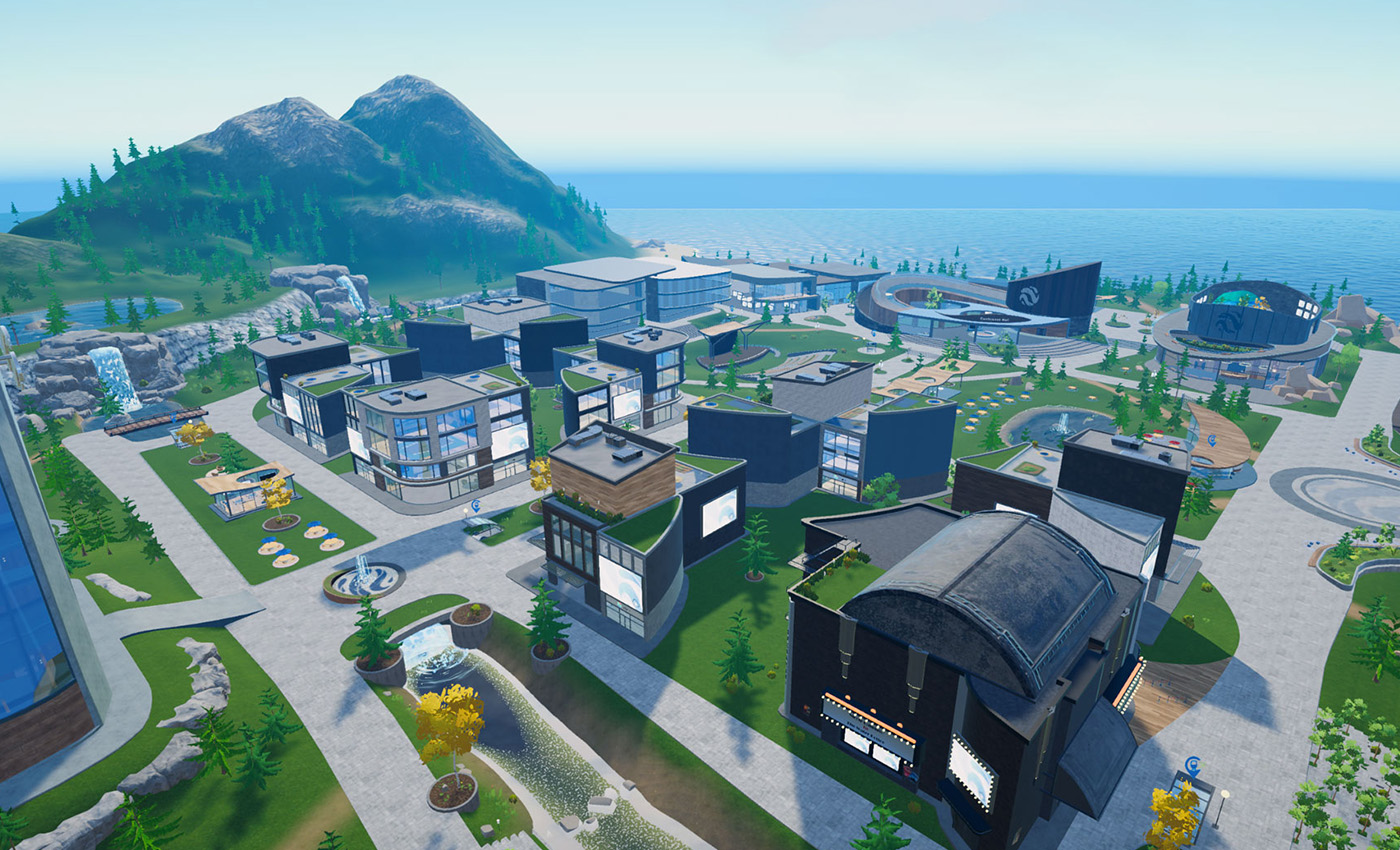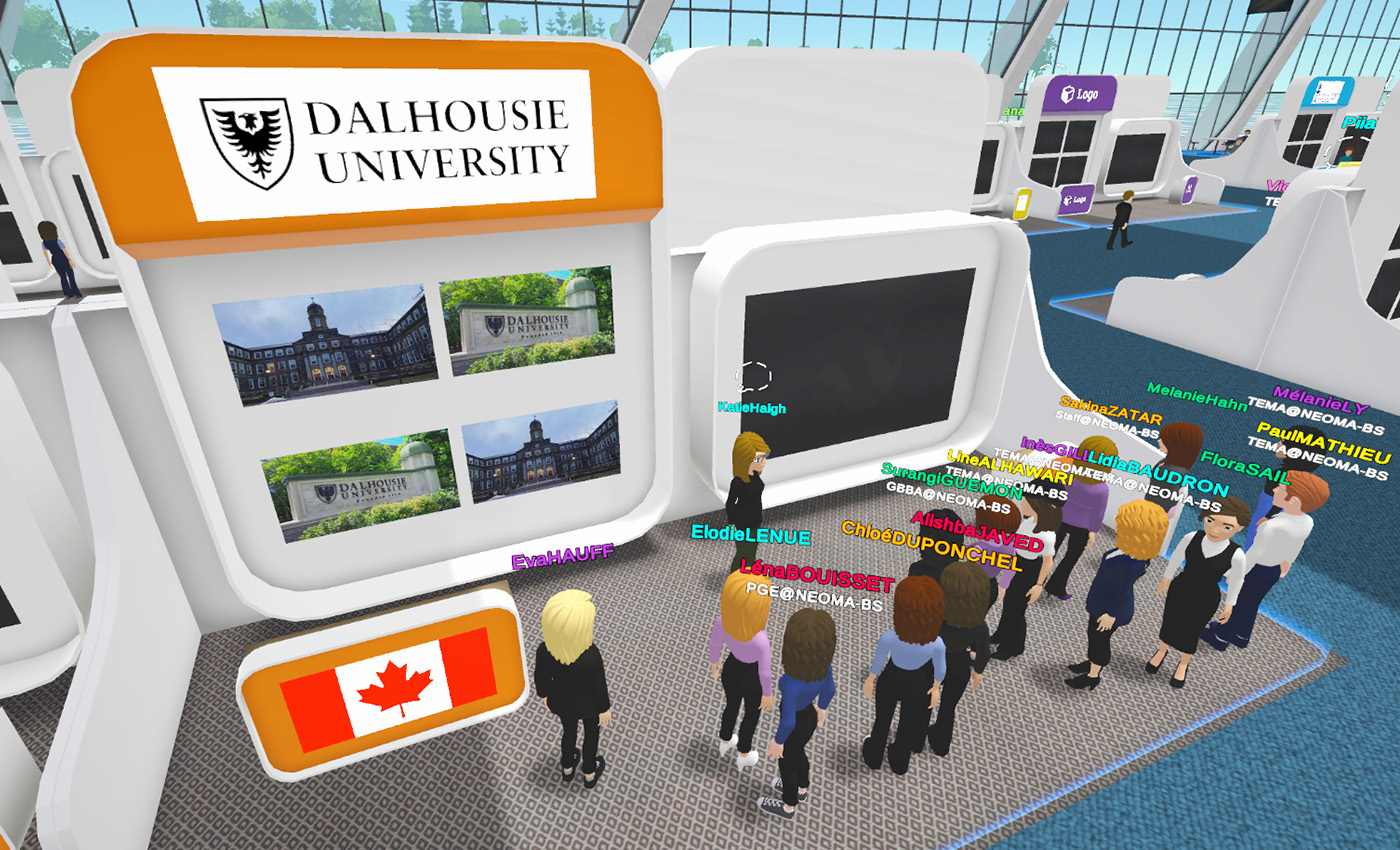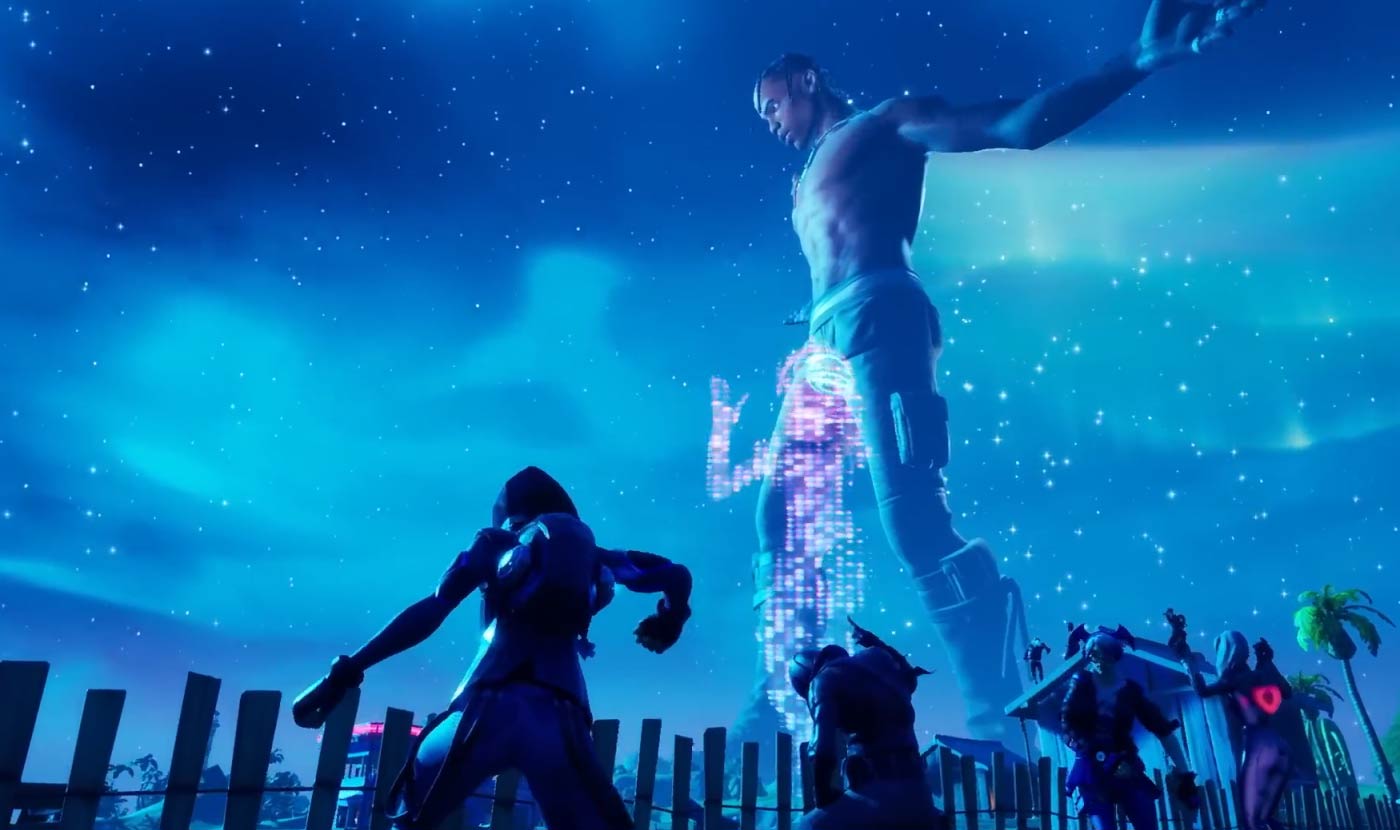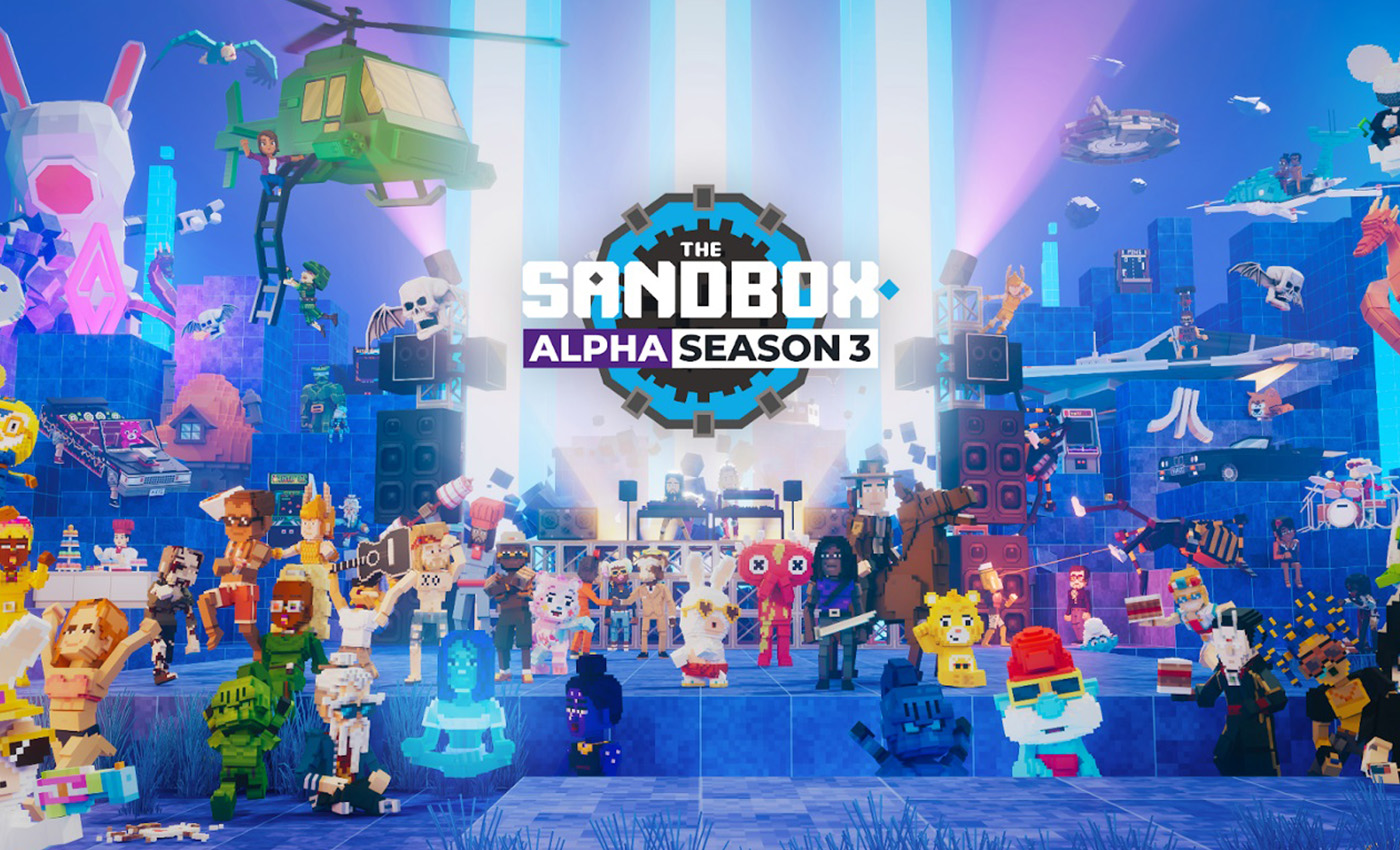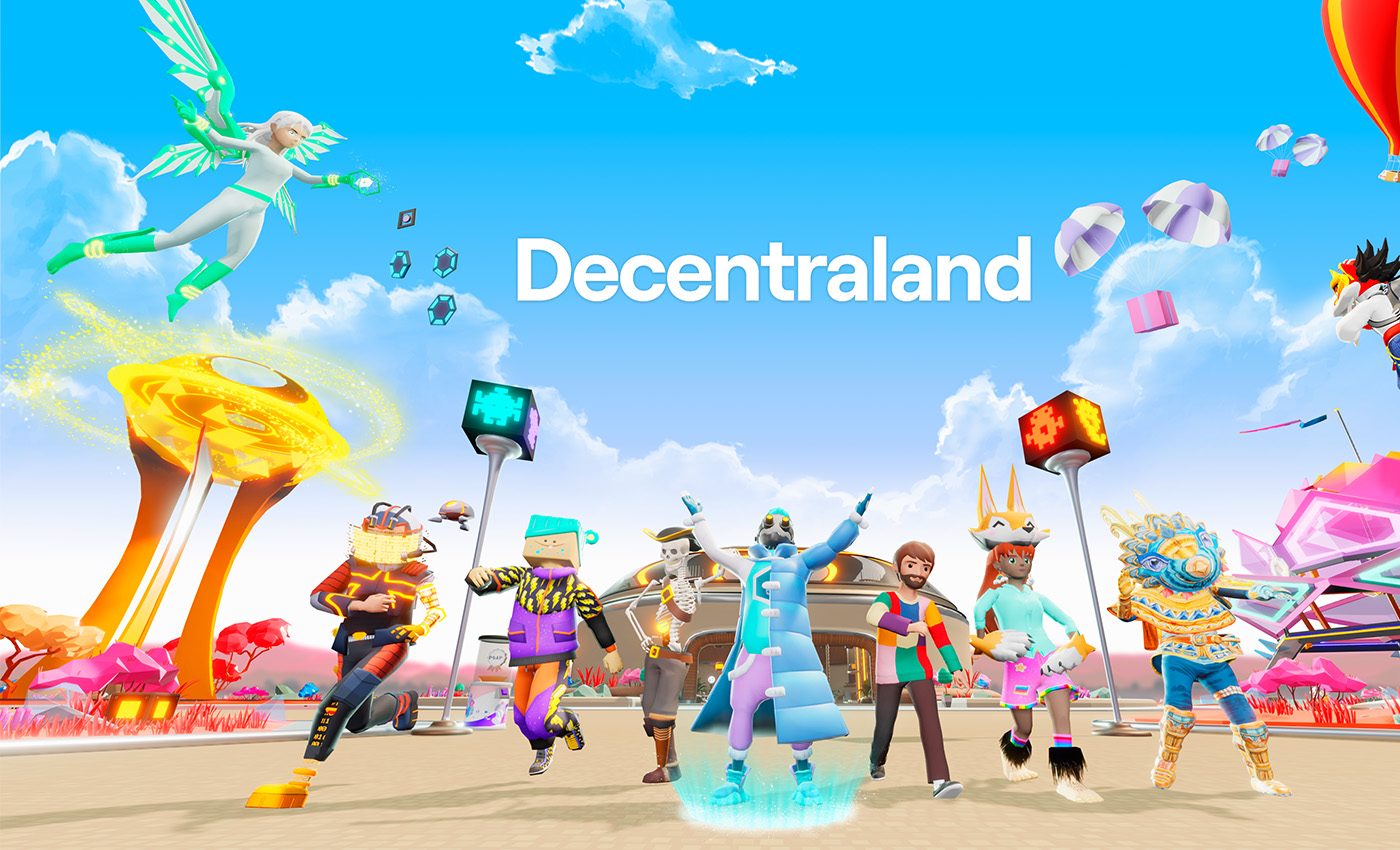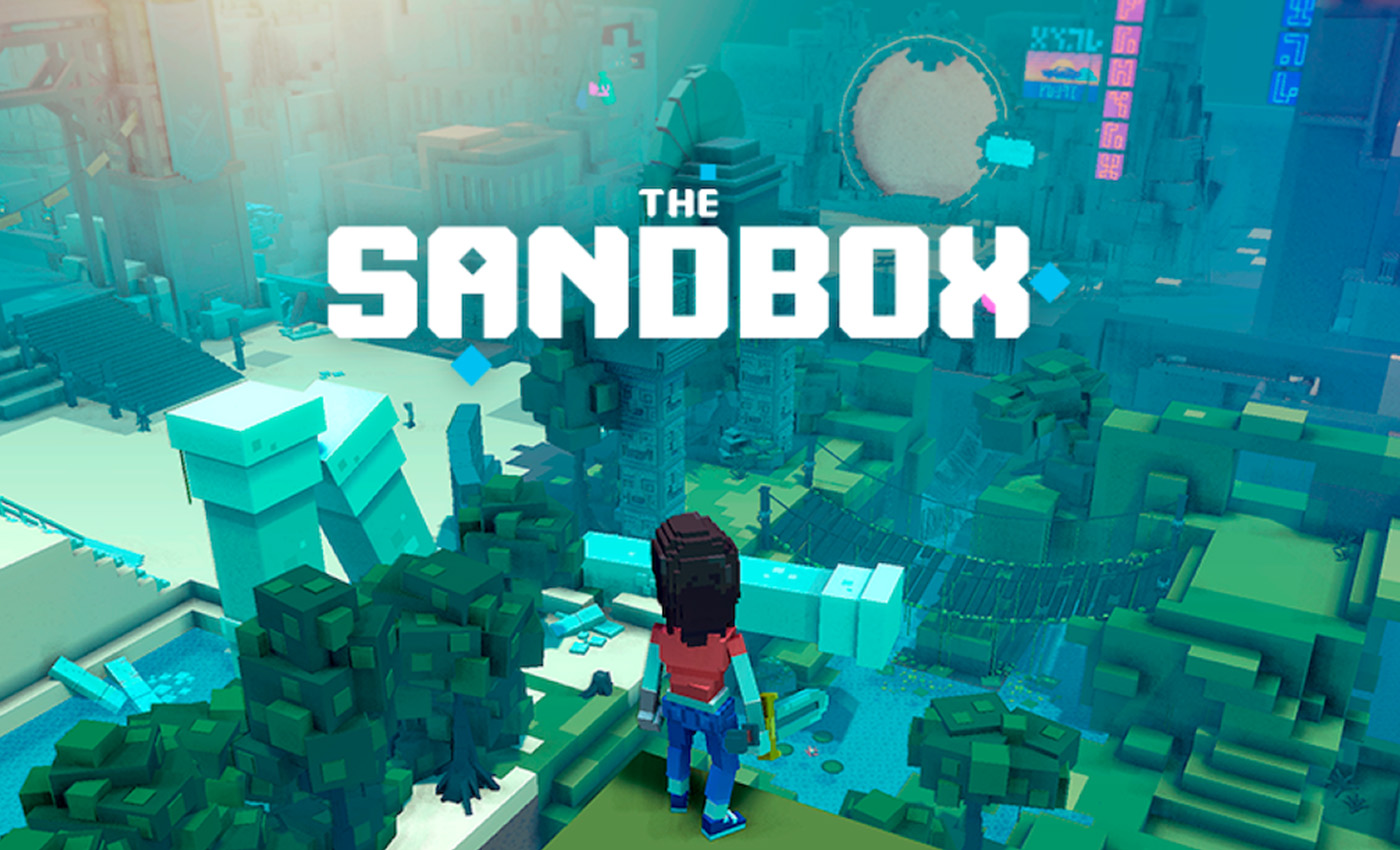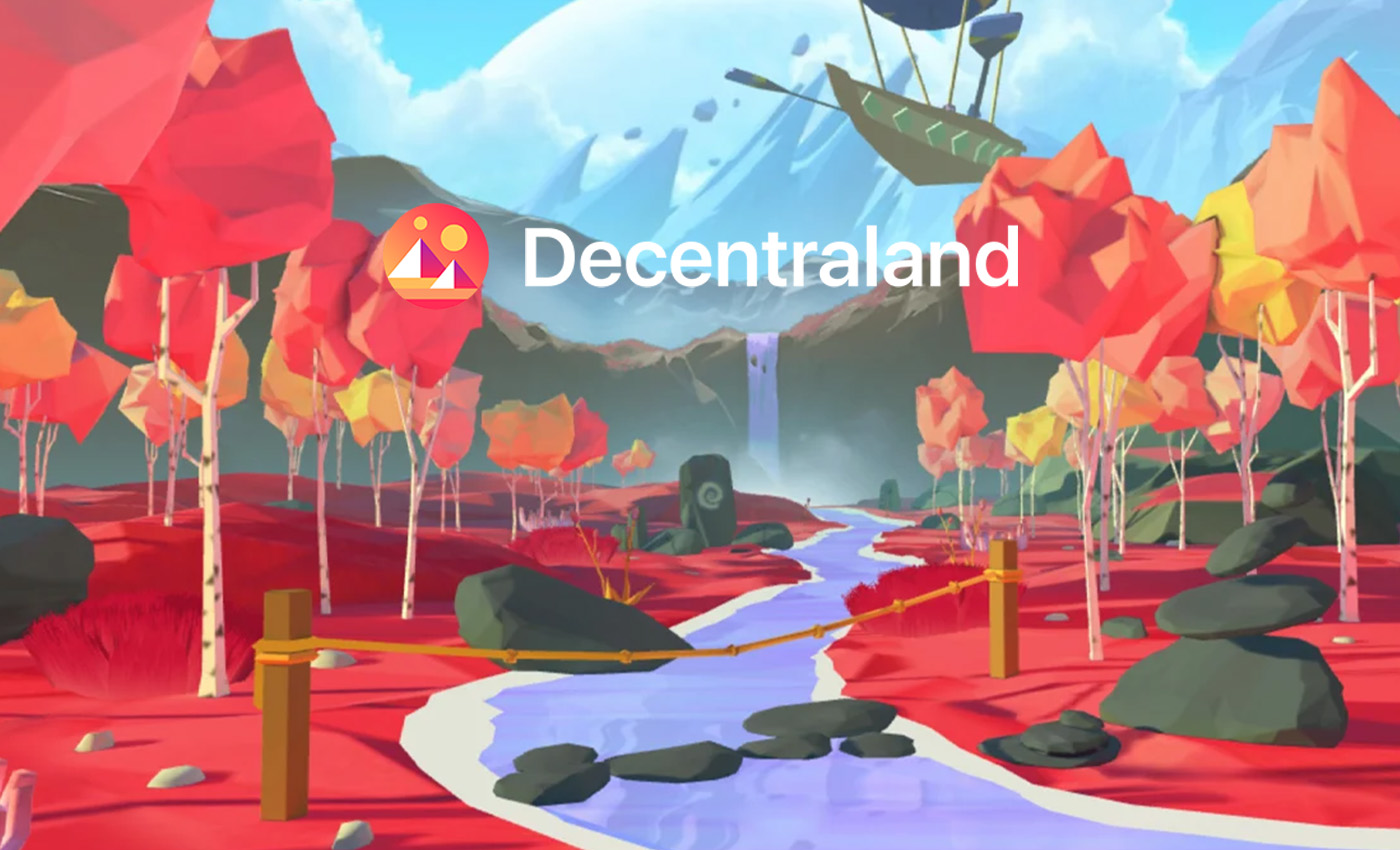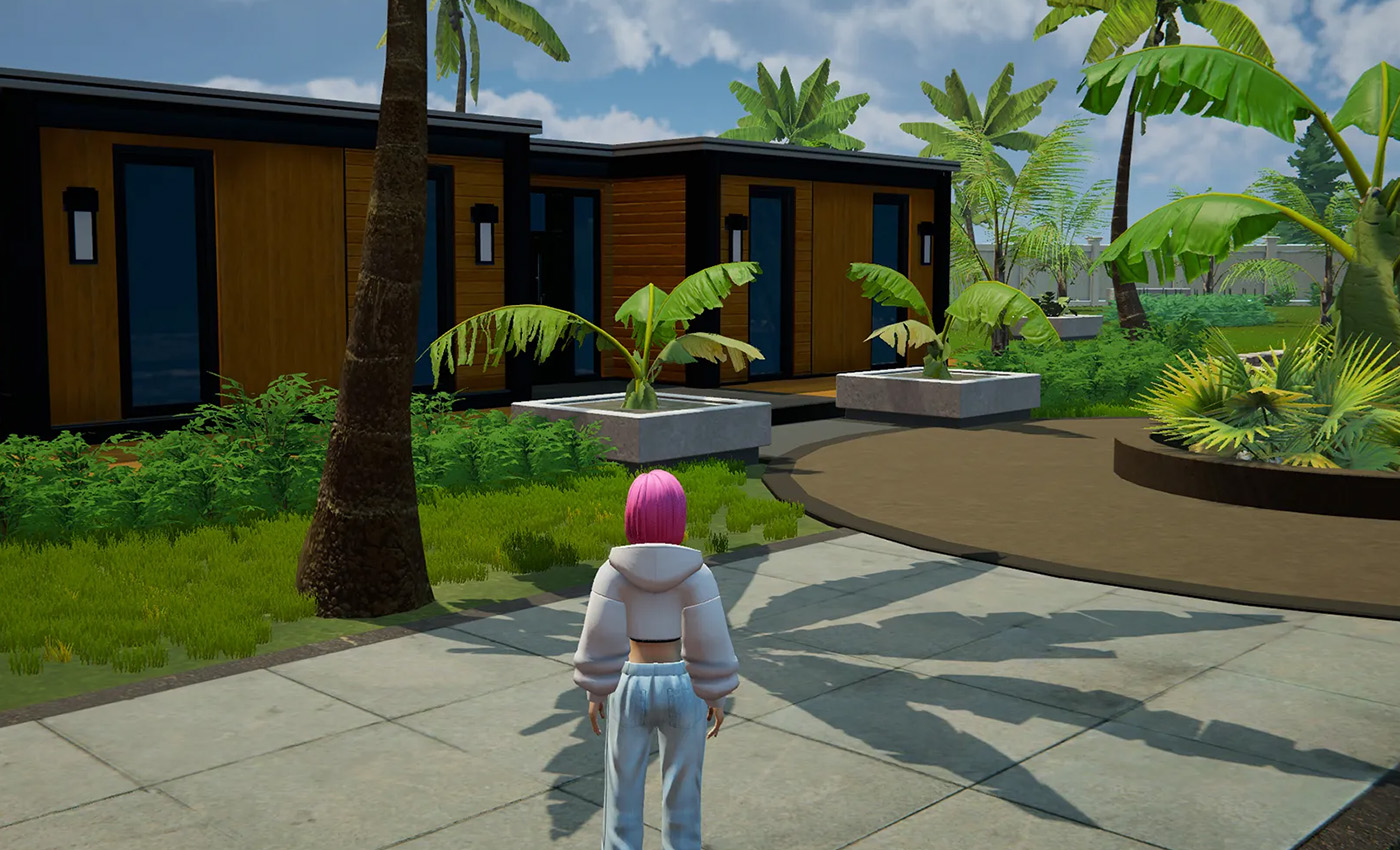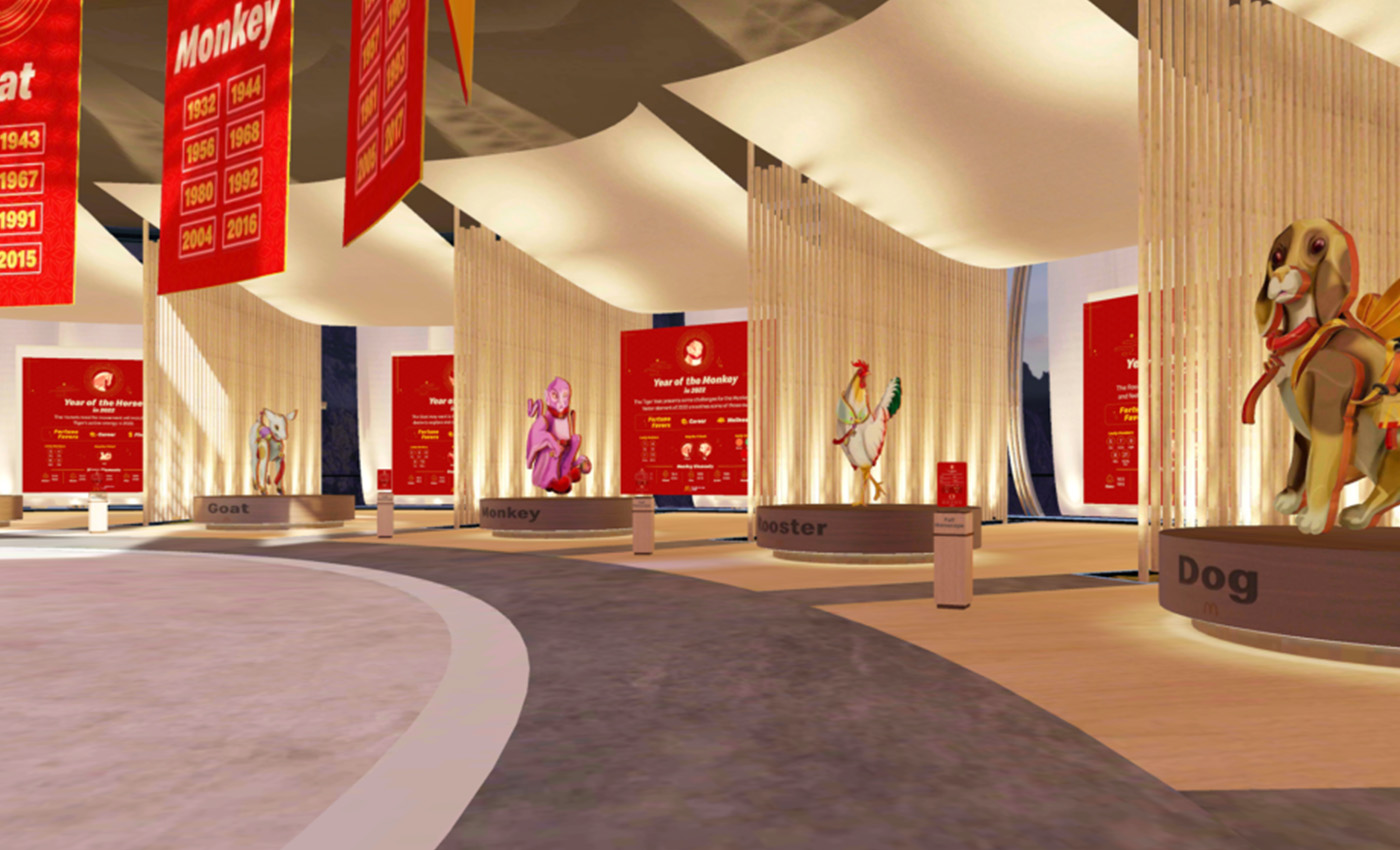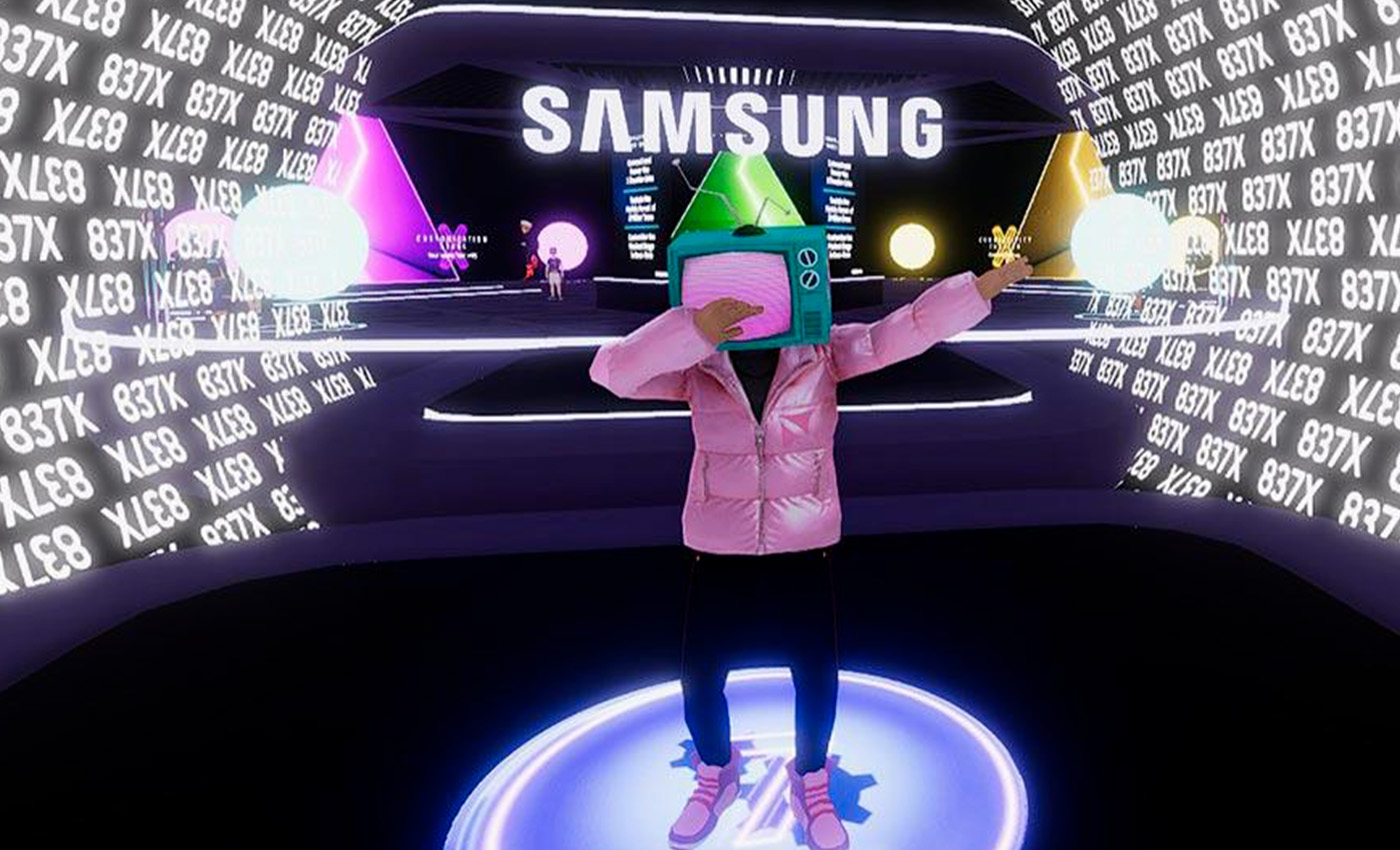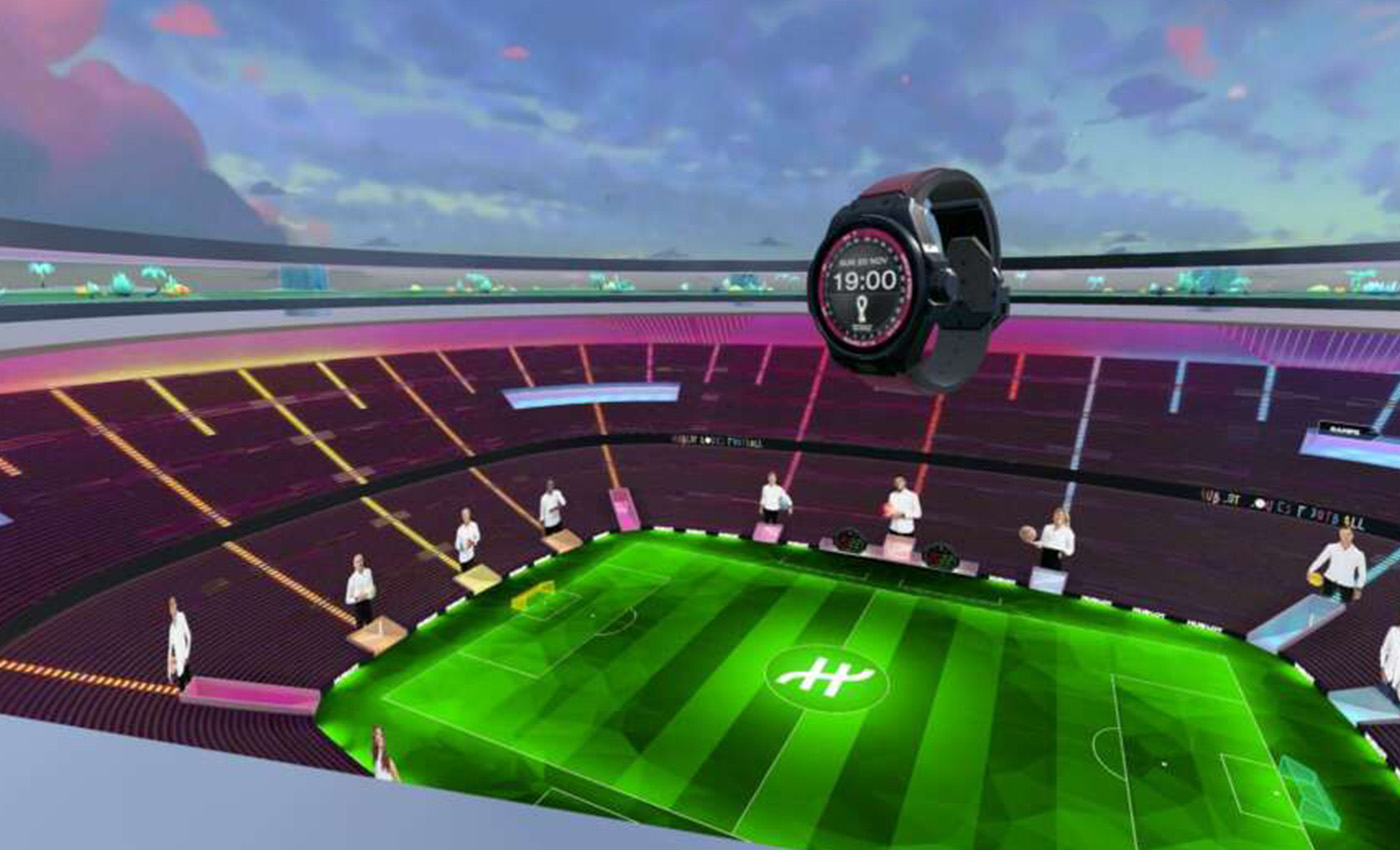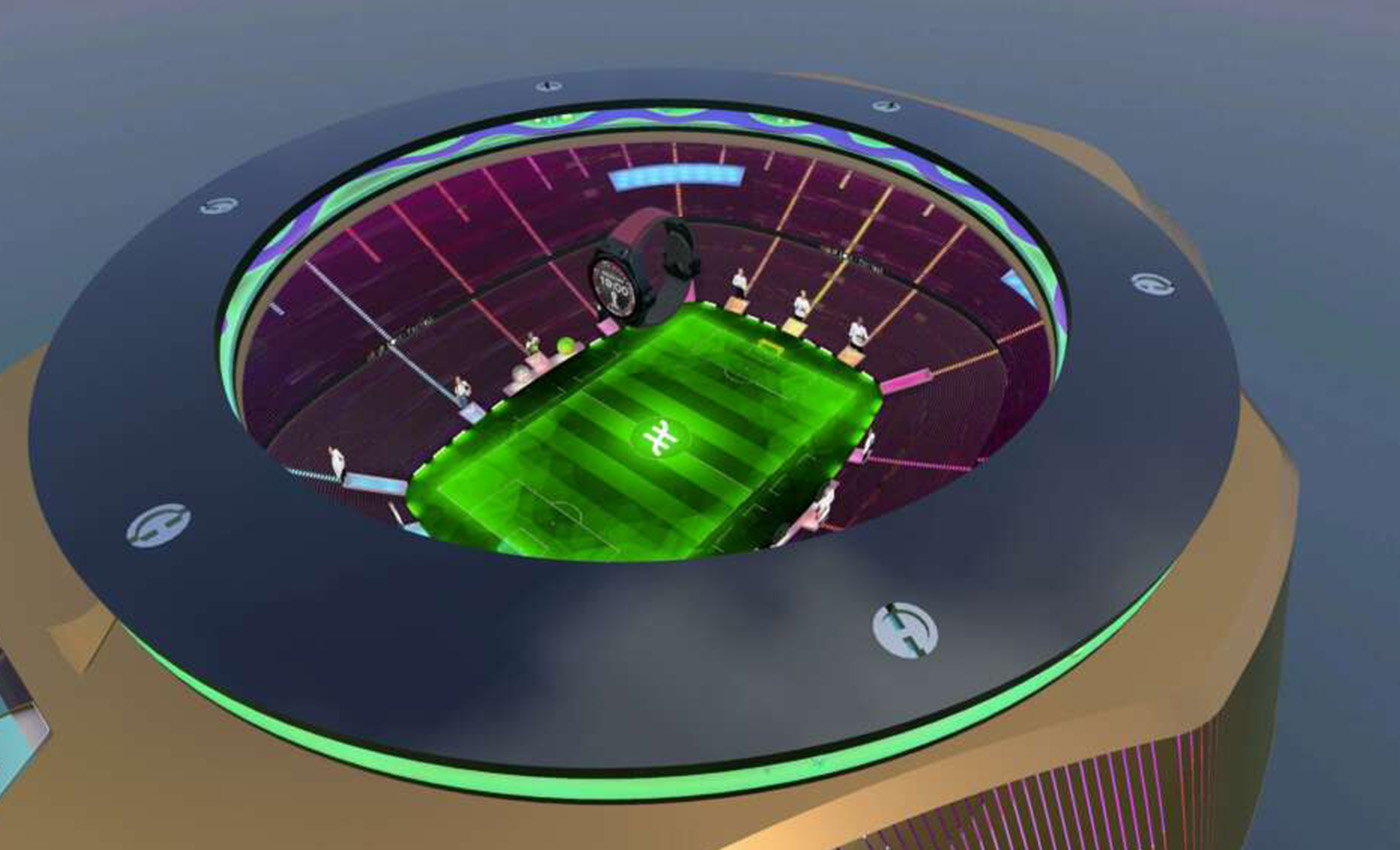- Summary
- Chapter 01 - INTRODUCTION
- Chapter 02 - Metaverse market insights
- CHAPTER 03 - 6 Metaverse use cases in various Industries
- Chapter 04 - Redefining Gaming Experiences with Metaverse
- Chapter 05 - Metaverse Web 3.0: Pioneers and New Entrants
- Chapter 06 - Enriching Tourist Experiences with Metaverse Virtual Engagement
- Chapter 06 - Redefining Retail Experiences with Metaverse
- Chapter 07 - Rethinking real estate experiences
- Chapter 07 - Conclusion

6 Metaverse Use Cases to Consider in 2024
- Read time 15min
- published 2023.12.19 updated 2024.02.16
-
what
- Blog
- Gaming
- Immersive
- metaverse
- phygital
As we approach 2024, the Metaverse has transcended its initial hype, maturing into a more nuanced and practical vision of our evolving digital ecosystem. Initially envisioned by Neal Stephenson in 1992, the Metaverse, once a futuristic concept, is now an integral part of our digital experience. While early predictions estimated its market size to reach $678.8 billion by 2030, recent developments suggest a more complex and diversified trajectory.
INTRODUCTION
In 2023, the Metaverse’s growth was driven not just by its novelty, but by its ability to offer tangible benefits across various sectors. It has evolved into a multifaceted vision for the future of digital experiences where business, education, and even everyday life activities intersect with virtual elements and environments. The Metaverse is no longer just a topic of interest among investors and tech enthusiasts; it has become a part of the mainstream digital conversation.
Key trends in the Metaverse today indicate a shift towards more immersive experiences, with technological advancements leading to more realistic avatars and interactive virtual worlds. Companies are increasingly investing in digital and virtual experiences for business operations, remote work, and training, leveraging it for internal efficiencies and customer engagement. For instance, immersive training sessions and virtual corporate campuses are becoming more common, allowing companies to innovate and stay competitive.
Furthermore, industries ranging from entertainment to retail are finding novel ways to engage with audiences in the Metaverse. Events like virtual concerts and brand experiences in virtual environments are becoming more prevalent, offering new avenues for marketing and consumer engagement.
In this revised landscape, the Metaverse is not just a trend to follow; it’s a dynamic vision where real-world activities are mirrored and enhanced. As we move into 2024, the potential applications of the Metaverse are vast and continually evolving, driven by technological innovation and a growing user base seeking virtual experiences that complement and enrich their real-world interactions.
This article will delve into six compelling use cases of the Metaverse to consider in 2024, showcasing how this digital universe is reshaping various aspects of our lives and opening up new possibilities for the future powered by advanced technologies such as artificial intelligence (AI), virtual reality, blockchain, and more.
Metaverse market insights
Today, the Metaverse is expanding, offering virtual worlds accessible from a variety of devices, such as smartphones, tablets, laptops or PCs, and gaining popularity in the technology and gaming sectors in recent years.
Here are a some more key statistics according to METAV.RS :
– Analysts anticipate the metaverse sector will experience an annual expansion rate of 13.1%.
– 74% of American adults are considering or have joined the metaverse.
– People spend $54 billion annually on virtual products in the metaverse.
The advent of the metaverse marks a significant shift in our interaction with the Internet, offering varied and innovative use cases, particularly relevant in the post-pandemic context where remote working has become commonplace.
6 Metaverse use cases in various Industries
Leveraging Virtual Collaboration for Effective Hybrid Work.
The rise of remote and hybrid work arrangements has brought about a significant shift in employee connectivity, with 60% reporting a reduced sense of camaraderie with their colleagues.
While team-building events conducted via Zoom might have been effective in 2020 and 2021, today, individuals increasingly seek a more genuine sense of connection and presence in their online interactions.
The metaverse revolutionizes digital work environments by transforming them into virtual spaces that offer immersive experiences. These experiences go beyond simply mimicking in-person collaboration, making it more captivating through visually rich virtual environments, 3D avatars, and mixed reality experiences.
A notable example is Meta Horizon Workrooms which provide tools such as a persistent whiteboard for note-taking during meetings, flexible meeting rooms, a remote desktop, and spatial audio for total immersion.
The metaverse is poised to be a game-changer for remote and hybrid working. As employees aspire to more meaningful connections with their colleagues, virtual spaces offering immersive experiences will play a central role in reshaping how we work together.
Virtual Education & Training
The underlying technology of the metaverse is also redefining the landscape of education and training — particularly AR and VR technologies. This transformation is evident in various academic sectors, especially post-pandemic, as institutions widely adopt online resource creation and consumption strategies, incorporating AR/VR-based learning and teaching activities.
The use of 3D and 360-degree content in the metaverse is dramatically transforming the way complex concepts, particularly in engineering and medicine, are taught and learned. This immersive approach to learning not only enhances comprehension and memorization but also increases student engagement.
For example, Google Expeditions offers VR excursions, providing students with experiential learning opportunities that traditional classrooms can’t match. In the case of a VR-based training course for new managers in 12 US sites, data showed that VR learners were trained four times faster in addition to being more confident, more emotionally connected, and more focused than in traditional classroom and e-learning methods.
Virtual classrooms and accessibility
Virtual classrooms in the metaverse are becoming essential to making education more accessible and attractive. These metaverse spaces enable interaction and group work under the supervision of an instructor, even if learners are not physically present on campus. This approach eliminates geographical barriers and enables students from diverse backgrounds to receive quality teaching without having to travel physically.
For example, Neoma Business School was the first school in Europe to open its permanent virtual campus in September 2020. Whether you’re taking or giving a course, joining a workgroup, or attending a conference, everyone can meet up in this new space as their personalized avatars. The virtual campus is an environment that complements existing learning spaces in the real world, guaranteeing the richest possible academic experience, even at a distance.
Thus, The metaverse emerges as a versatile and powerful educational tool, offering opportunities for immersive learning, accessibility, personalized education, and cultural inclusion. As technology continues to evolve, the metaverse is sure to play a crucial role in shaping the future of education and training worldwide.
Redefining Gaming Experiences with Metaverse
Roblox and Fortnite have revolutionized the gaming landscape by offering immersive worlds where players don’t just play; they become an integral part of the experience. Roblox, with its user-generated games and experiences, allows players to create their own worlds, fostering creativity and community. Fortnite, known not only for its battle royale mode but also for its UGC mode, transcends traditional gaming by hosting virtual concert events, such as Travis Scott’s in 2020, which attracted an audience of 12.3 million, mixing gaming, social interaction, and cultural experiences.
Initially perceived as a platform for children, Roblox has become the preferred choice for brands seeking to integrate into the metaverse and offer immersive experiences to their fans.
Exclusible’s “Stepping into Roblox as a Brand report highlights the success of projects such as:
NARS Cosmetics: Launched ‘Color Quest’ and ‘Sweet Rush,’ attracting millions of visits. These experiences integrated gaming with beauty, allowing players to explore themed islands, engage with branded NPCs, and create custom makeup looks.
Vans World: A virtual skatepark mirroring real-world locations where players could skate, collect items, and customize avatars. It recorded over 100 million visits, demonstrating the brand’s authentic integration into the Metaverse.
Chipotle: Their ‘Boorito Maze’ and ‘Burrito Builder’ experiences integrated real-life events with virtual worlds, offering codes for real-life rewards marking a unique blend of digital and physical engagements.
With millions of daily active users, Roblox represents enormous potential for immersive brand experiences. For more information, see the full Roblox report here.
Metaverse Web 3.0: Pioneers and New Entrants
Web3 metaverse platforms like the Sandbox and Decentraland are also in the game, offering decentralized, user-generated content. They enable users to create, experience, and monetize content and applications, laying the foundation for a new era of digital interaction.
Each land parcel is a unique Non-Fungible Token (NFT), a distinct code sequence held in your cryptocurrency wallet and recorded on the blockchain. This blockchain serves as a title record, confirming ownership.
The land available on virtual world platforms is theoretically limited, with each plot having its own coordinates, similar to parcels in the real world. When you combine adjacent parcels, you create an estate.
Landowners have the freedom to develop their virtual land. This can include creating VR environments, adding user experiences, constructing interactive elements, and placing virtual objects.
You can acquire metaverse real estate through full ownership or fractional ownership. It’s also possible to sell or lease your virtual land.
You can purchase virtual land on the primary marketplaces of each metaverse or secondary marketplaces like OpenSea or Rarible.
Founded in 2022, ZTX is the joint blockchain initiative of Jump Crypto and ZEPETO — Asia’s largest avatar social network with over 400 million lifetime users.
As the UGC-driven nature and creative economy aspect of ZEPETO grows, ZTX aims to cater to the new demands of creators and communities by building an on-chain open world where users can more robustly participate in governance and economics when creating and selling digital assets.
The beta launch features immersive activities, social interaction, gaming, governance participation, and digital asset transactions. ZTX also introduces a decorator mode, allowing users to explore and customize their land and homes and participate in private beta testing with additional gameplay features such as harvesting, owning materials, and artisanal.
It offers unique experiences and interactions, expanding the boundaries of what’s possible in the Metaverse.
The evolution of gaming in the Metaverse, from Roblox and Fortnite to newer Web3 platforms like ZTX, highlights the limitless potential of virtual worlds in shaping future entertainment and social interactions.
Virtual Brand Experiences
Brands can use the metaverse to create virtual experiences that showcase their values and mission in a unique and immersive way.
The metaverse experience designed by Exclusible and Polycount for McDonald’s during the Chinese New Year is a perfect example of the ability of the metaverse to energize corporate events.
The initiative involved collaboration with IW Group and Humberto Leon to create a VR “Hall of Zodiacs,” featuring the twelve Chinese zodiacs, designed by Feng Shui architect Cliff Tan. The event memorably marked the Year of the Tiger in VR, seamlessly merging digital and physical celebrations for an unforgettable party experience.
Samsung has also ventured into the metaverse, launching the Samsung 837X experience on Decentraland. A digital innovation from its famous New York ephemeral store, this virtual showcase is designed to highlight the latest products and groundbreaking innovations unveiled at CES in Las Vegas.
The 837X experience is divided into three parts:
The Connectivity Theater is the heart of the experience, where users can discover CES presentations and explore Samsung’s cutting-edge technologies.
The Customization Stage: This is an event space where users can participate in dance parties hosted by a live DJ, recreating the atmosphere of real-life events at the Samsung 837 physical store in New York.
The Sustainability Forest: This section highlights Samsung’s ecological initiative to plant 2 million trees in collaboration with an NFT company that offers verifiable proof of tree planting.
In addition, an interactive portal transports users into a lush forest with entertaining games. Samsung’s approach to the metaverse represents a captivating fusion of entertainment, immersive storytelling, brand promotion, and sales enablement.
These achievements demonstrate how the metaverse can transform events created for companies into unique opportunities for engaging and entertaining their customers or employees. With customizable metaverse spaces, these events enable total immersion, offering endless possibilities for organizing festivities, conferences, product presentations, workshops, and business meetings in an innovative and captivating way.
Enriching Tourist Experiences with Metaverse Virtual Engagement
The metaverse offers a new frontier for the tourism industry, blending the real with the virtual to create rich, engaging travel experiences. This innovative approach is not limited to replicating real-world travel experiences but extends to creating entirely new environments connecting people globally in immersive spaces.
Augmented Reality Tourism: The Notre Dame Experience
In Paris, the Notre Dame Cathedral’s augmented exhibition, created by Histovery, showcases a blend of virtual and physical elements. Visitors use a “HistoPad” touchscreen to interact with 3D models, photographs, and audio elements, offering a unique tour combining physical presence and digital interaction.
Virtual Exploration: ZEPETO World and BCB Group
ZEPETO World, a smartphone app, allows users to create avatars and virtually explore Korea, including the detailed interactive map of Han River Park. With approximately 190 million members, this platform demonstrates the vast potential for virtual tourism in engaging younger demographics.
Similarly, the BCB Group has developed a metaverse city featuring landmarks like the Great Wall of China and the Statue of Liberty, offering a cost-effective and accessible virtual travel experience.
In the metaverse, there’s a unique ability to create virtual sporting events, offering a new way to experience the excitement of live sports. Imagine virtual stadiums where fans can attend matches and participate in pre-game activities, such as virtual parties. This approach revolutionizes the sporting experience, making events more accessible and interactive.
Our project with Hublot for the Football World Cup 2022 perfectly illustrates this innovation. Exclusible x Polycount transformed virtual stadium concepts into a 3D metaverse environment capable of hosting 90,000 virtual fans. By fusing iconic Hublot watch designs with soccer elements, we created a unique space on Spatial, accessible free of charge and featuring 15 Hublot brand ambassadors.
Exclusible specializes in crafting immersive experiences in partnership with Polycount. Since 2021, we’ve built 200 metaverse projects, demonstrating our expertise and innovation in this field.
The Evolving Role of Agencies
In this rapidly advancing realm, agencies like Exclusible play a pivotal role. They are the catalysts and navigators of the metaverse, guiding clients through these technological advancements and market shifts.
Bridging Technology and Practicality: Agencies are essential in translating emerging technologies into practical applications. They help clients harness VR, AR, and AI to create immersive, interactive digital properties that resonate with users.
Market Insight and Strategic Planning: As the metaverse evolves, so does the need for in-depth market understanding and strategic foresight. Agencies provide critical insights into market trends, user behavior, and technological advancements, helping clients stay ahead of the curve.
Ensuring Compliance and Ethical Development: The role of agencies extends to ensuring that developments in the metaverse adhere to legal standards and ethical practices. This includes navigating the complexities of digital ownership, privacy concerns, and the creation of inclusive and accessible spaces.
Redefining Retail Experiences with Metaverse
In the metaverse, brands can develop virtual showrooms, offering customers a new way of exploring products and services. This helps customers better visualize products and facilitates their purchasing decisions. This digital approach transforms the customer experience, making furniture shopping more interactive and engaging.
A prime example is our project for Hugo Boss, which was carried out in collaboration with Polycount. We created an immersive showroom on Spatial.io during Metaverse Fashion Week, fusing the ambiance of Miami with a unique virtual shopping experience. This showroom offered innovative features such as gamified quests rewarding users with avatars, precise reproductions of garments, and e-commerce integration, transforming traditional shopping into an interactive and engaging experience.
The project was a resounding success, attracting 56,000 visits from 127 different countries, demonstrating the immense potential of virtual showrooms to enrich the retail experience in the metaverse.
The advent of the metaverse opens up new possibilities for customer service improvements, transforming the traditional support experience into a more engaging and effective digital interaction.
Here are a few notable examples:
Real-Time Support in Virtual Reality (VR): Imagine a customer immersed in a VR experience encountering an issue. Instead of having to remove their headset and seek assistance through another device, the metaverse enables real-time customer service within the virtual environment itself. This seamless integration allows users to receive immediate support without breaking their immersive experience.
Product Assistance and Demonstrations: The metaverse facilitates a unique opportunity for customer service representatives to exist in the same virtual space as the customer. For instance, if a customer is having trouble setting up a new computer, a representative could provide step-by-step instructions and product demonstrations in the metaverse, enhancing clarity and efficiency. This method eliminates the disconnect often experienced in phone or live chat support, allowing for a more hands-on and interactive problem-solving approach.
In-App and AR Support for Mobile Games: Companies like Helpshift are innovating in the metaverse by enabling mobile game developers to offer in-metaverse support. Their service, “Metashift,” allows game users to provide feedback and report bugs directly within the app and augmented reality (AR) experiences. This approach streamlines the support process, making it more accessible and integrated into the user’s gaming experience.
These examples highlight how the metaverse is revolutionizing customer service, offering more personalized, immediate, and interactive support options. By bringing customer service representatives and customers together in a shared digital space, the metaverse is setting a new standard for customer engagement and satisfaction.
Rethinking real estate experiences
Exclusible specializes in creating digital twins of actual, physical properties in the metaverse, enhancing the sales process for these properties. By designing virtual counterparts of real estate, we tap into the vast potential of the digital world to improve property sales.
Why Digital Twins? Our approach allows sellers to reach more potential buyers and sell faster and more efficiently through virtual tours. With increased reach and 24/7 accessibility, clients can experience properties like never before. This approach is particularly effective for brands looking to launch digital versions of their flagship stores, making them accessible to anyone, anywhere.
Property Sales: Our strategy has shown to improve sales by 130% among the 18-34 age group. This demographic is increasingly comfortable with and excited by digital experiences, making virtual property tours a powerful tool in the real estate market.
Property Views: Listings with digital twins receive 87% more views than traditional home listings. This significant increase in visibility translates to higher interest and engagement from potential buyers.
Decision-Making: The immersive and interactive nature of our digital twins enhances the impact on potential clients’ decision-making by 75%. By offering a more engaging and comprehensive view of the property, clients can confidently make informed decisions.
At Exclusible, we’re not just about creating digital spaces; we’re about transforming the real estate industry by bridging the gap between physical and virtual worlds, making property viewing and purchasing a seamless and modern experience. Learn more here.
Conclusion
As explored throughout this article, the metaverse is not just a fleeting trend but a transformative force reshaping various industries. The metaverse is opening doors to innovative possibilities, from enhancing remote work through virtual collaboration to revolutionizing retail experiences with interactive virtual showrooms.
In education, gaming, tourism, and real estate, we see its potential to create immersive, engaging experiences beyond physical boundaries. As we move into 2024 and beyond, the metaverse promises to further integrate into our daily lives, redefining how we interact, learn, work, and entertain ourselves in an increasingly digital world.
